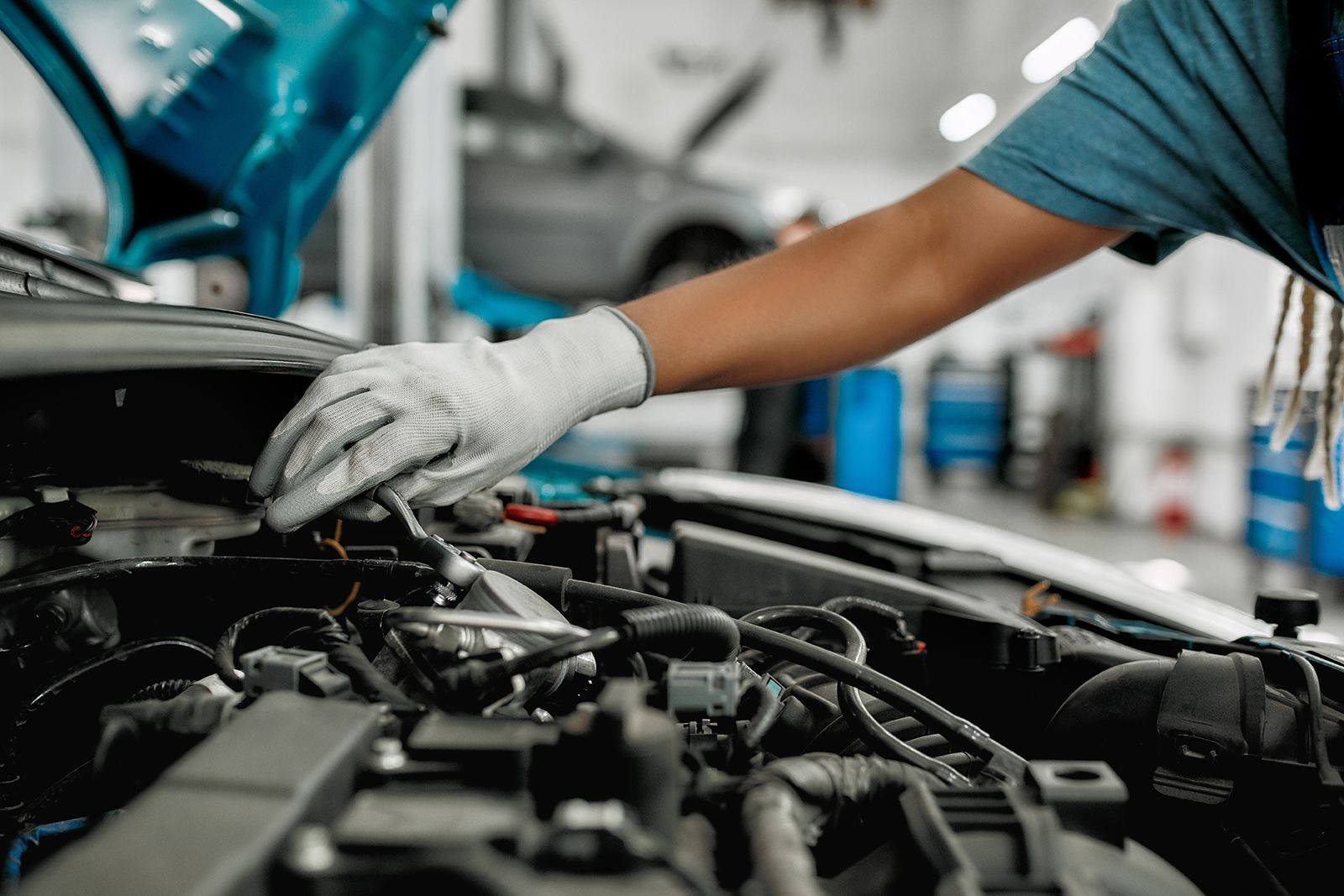All Categories
Featured
The increase of electrical vehicles (EVs) has produced considerable advancements in lasting transportation, however it additionally presents an expanding concern: what happens to EV batteries when they are no more functional? These batteries, which include valuable materials such as cobalt, nickel, and lithium, can not merely be discarded. Reusing them is vital to minimize ecological harm and recuperate vital sources. Repair shops have entered this space, using electrical car battery recycling services to satisfy the demands of eco-conscious EV proprietors.
![]()
Environmental Management: Avoiding dangerous chemicals from polluting dirt and water. Resource Healing: Removing multiple-use materials like lithium and cobalt to reduce the requirement for brand-new mining procedures. Power Performance: Recycling uses much less power than sourcing resources, adding to a lower carbon footprint. As countless EV batteries are expected to get to completion of their lifecycle in the coming years, the demand for recycling options has actually never ever been higher.
Collection and Safe Storage: Several service center accumulate made use of EV batteries from customers and save them securely until they can be transferred to recycling facilities. Collaborations with Recyclers: Shops commonly work together with specialized reusing companies that extract and repurpose important materials. Repurposing Efforts: Some batteries, although no more suitable for automobiles, can be repurposed for fixed power storage options, a solution some service center promote. 3. Collaborations with Manufacturers and Recycling Programs. To simplify the reusing process, service center usually partner with EV manufacturers and third-party recyclers. Examples include:
Supplier Programs: Brands like Nissan and BMW have implemented battery reusing campaigns, using qualified fixing stores to collect and manage made use of batteries. Third-Party Recyclers: Firms like Redwood Materials and Li-Cycle work with independent fixing shops to reuse batteries from numerous EV brand names. These partnerships guarantee that recycling is handled sensibly and effectively, with marginal environmental impact.
Comfort: Consumers can reuse batteries locally without navigating complicated recycling networks. Price Savings: Some shops use trade-in credit scores or price cuts on replacement batteries when customers recycle their old ones. Sustainability Guarantee: Partnering with reliable shops warranties that batteries are recycled in conformity with ecological laws. 5. Difficulties in Expanding Recycling Solutions. Regardless of progress, there are challenges to making battery reusing globally readily available:
Training Demands: Taking care of EV batteries safely needs specialized expertise and equipment, which not all service center possess. Expense of Recycling: Delivering and processing batteries can be pricey, posturing an obstacle for smaller sized shops. Limited Facilities: In some regions, accessibility to recycling facilities is still underdeveloped. Governments and producers are working to address these problems with incentives, funding, and research study into more effective reusing technologies.
![]()
Conclusion. Yes, repair service stores providing electrical vehicle battery recycling are coming to be a necessary component of the EV ecological community. By collaborating with manufacturers, recyclers, and ecological programs, these companies are assisting to ensure that the transition to electrical transportation is as lasting as possible.
For EV owners, selecting service center with reusing capabilities is not just a sensible decision however additionally a responsible one. Together, repair service consumers, manufacturers, and stores can create a lasting future where EV batteries are not thrown away however repurposed, reused, and recycled for the benefit of the world.

- The Value of Recycling EV Batteries. Unlike typical vehicle batteries, EV batteries are large and complicated, with one-of-a-kind recycling requirements. Appropriate recycling is crucial for several reasons:
Environmental Management: Avoiding dangerous chemicals from polluting dirt and water. Resource Healing: Removing multiple-use materials like lithium and cobalt to reduce the requirement for brand-new mining procedures. Power Performance: Recycling uses much less power than sourcing resources, adding to a lower carbon footprint. As countless EV batteries are expected to get to completion of their lifecycle in the coming years, the demand for recycling options has actually never ever been higher.
- How Repair Service Shops Add To Battery Recycling. Repair shops play a crucial duty in the EV environment by offering efficient and accessible recycling alternatives. Right here's just how they sustain sustainability:
Collection and Safe Storage: Several service center accumulate made use of EV batteries from customers and save them securely until they can be transferred to recycling facilities. Collaborations with Recyclers: Shops commonly work together with specialized reusing companies that extract and repurpose important materials. Repurposing Efforts: Some batteries, although no more suitable for automobiles, can be repurposed for fixed power storage options, a solution some service center promote. 3. Collaborations with Manufacturers and Recycling Programs. To simplify the reusing process, service center usually partner with EV manufacturers and third-party recyclers. Examples include:
Supplier Programs: Brands like Nissan and BMW have implemented battery reusing campaigns, using qualified fixing stores to collect and manage made use of batteries. Third-Party Recyclers: Firms like Redwood Materials and Li-Cycle work with independent fixing shops to reuse batteries from numerous EV brand names. These partnerships guarantee that recycling is handled sensibly and effectively, with marginal environmental impact.
- Benefits for EV Proprietors. Repair stores offering battery recycling services offer considerable benefits to EV proprietors:
Comfort: Consumers can reuse batteries locally without navigating complicated recycling networks. Price Savings: Some shops use trade-in credit scores or price cuts on replacement batteries when customers recycle their old ones. Sustainability Guarantee: Partnering with reliable shops warranties that batteries are recycled in conformity with ecological laws. 5. Difficulties in Expanding Recycling Solutions. Regardless of progress, there are challenges to making battery reusing globally readily available:
Training Demands: Taking care of EV batteries safely needs specialized expertise and equipment, which not all service center possess. Expense of Recycling: Delivering and processing batteries can be pricey, posturing an obstacle for smaller sized shops. Limited Facilities: In some regions, accessibility to recycling facilities is still underdeveloped. Governments and producers are working to address these problems with incentives, funding, and research study into more effective reusing technologies.

- The Future of EV Battery Recycling. As the EV market remains to expand, the role of fixing stores in battery recycling will end up being also a lot more vital. Regulative demands are encouraging producers and fixing networks to create detailed recycling systems. Arising modern technologies are also enhancing the performance of material healing, making reusing extra cost-efficient and extensively obtainable.
Conclusion. Yes, repair service stores providing electrical vehicle battery recycling are coming to be a necessary component of the EV ecological community. By collaborating with manufacturers, recyclers, and ecological programs, these companies are assisting to ensure that the transition to electrical transportation is as lasting as possible.
For EV owners, selecting service center with reusing capabilities is not just a sensible decision however additionally a responsible one. Together, repair service consumers, manufacturers, and stores can create a lasting future where EV batteries are not thrown away however repurposed, reused, and recycled for the benefit of the world.
Latest Posts
5 Budget-Friendly Fencing Solutions for Small Farms
Published Jan 04, 25
1 min read
Maximizing Your Ceramic Tile Service Warranty Protection
Published Jan 04, 25
1 min read
What Elements Impact the Price of Engine Fixing?
Published Jan 04, 25
0 min read